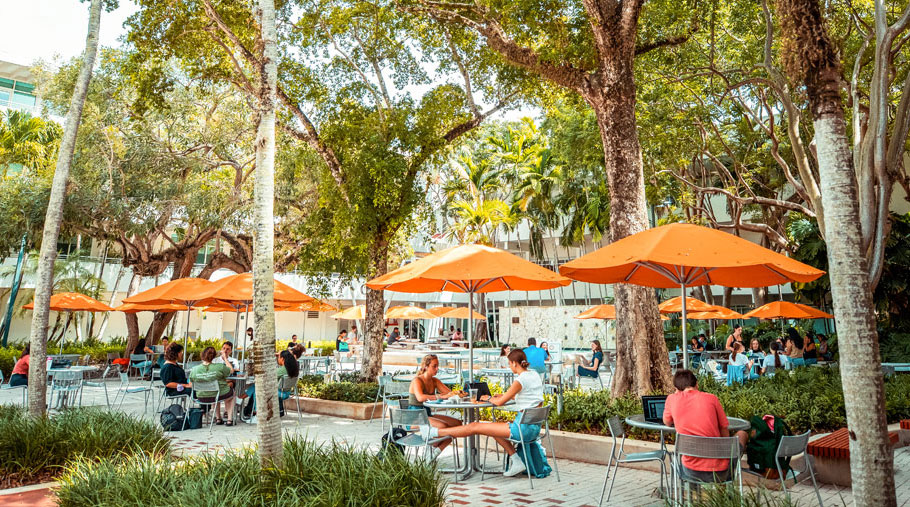This information is provided as a courtesy and should be used as general guidance, but each student should complete their own research on the application requirements, deadlines, and other information related to the bar of their choice.
New York is a Uniform Bar Examination (UBE) jurisdiction and has additional requirements. In addition to passing the bar exam and MPRE, to be sworn into the NY Bar, an applicant must:
- Comply with New York's distance education and degree limits
- J.D. applicants are limited to 15-credit limit for “distance education”
- The NY BOLE waived the prohibition on maximum distance learning credits during the coronavirus health emergency but reinstituted the prohibition as of Summer 2022. As such any distance education courses taken during Summer 2022 or latercount against the 15-credit limit for J.D. students.
- For foreign-trained LL.M.s, the L.L.M. Rule (Sec. 520(6)) does not allow credit for any online coursework, so do not enroll in courses that feature any online component.
- The NY BOLE waived the prohibition on maximum distance learning credits during the coronavirus health emergency but reinstituted the prohibition as of Summer 2022. As such, courses taken by L.L.M. students with any online component during Summer 2022 or later will not be counted by the NY BOLE.
- Pass the New York Law Exam (NYLE)
- Certify the completion of 50 pro bono hours
- Completion of the Skills Competency Requirement
Miami Law School’s Certification of its Graduates for Satisfying the NYS Skills Competency Requirement for Admission
The New York Court of Appeals has identified five pathways through which applicants for admission to practice may satisfy the requirement to "demonstrate that the applicant possesses the skills and values necessary to provide effective, ethical and responsible legal services in this State."
This requirement applies to:
- J.D. students commencing their studies after August 1, 2016
- LL.M. students commencing their studies after August 1, 2018.
Prior to applying to the New York Bar, all students should review carefully the information provided by the New York Court of Appeals as well as the FAQs.
Skills Competency Requirement for J.D. Candidates
Pathway 1
Pathway 1 allows applicants to satisfy the skills competency requirement by submitting a certification from their law school confirming that (1) the school’s curriculum incorporates the teaching of skills and professional values required for participation in the legal profession, and (2) that the applicant has acquired sufficient competency in those skills and sufficient familiarity with those values.
Fulfillment of Requirement:
Miami Law J.D. students are introduced to a core set of skills and professional values beginning in our mandatory orientation programming and then continuing through the standard required curriculum. To satisfy Pathway I, students must complete the educational program described below:
- New Student Orientation: This mandatory programming introduces students to the professional values and competencies necessary for the ethical and effective practice of law.
The following classes:
- At least four credits in the Legal Communication & Research Program, which teaches the following list of skills:
- Legal analysis
- Legal research
- Written communication, including:
- organization of legal writing
- persuasion and legal rhetoric
- reflection, editing, and revision
- proper documentation of and citation to research sources appellate brief writing
- Oral communication and advocacy:
- Client Communication
- Negotiation
- Professionalism
- At least six additional skills credits that satisfy ABA Standard 303(a)(3), which may be earned in a combination of clinics, externships, simulations, and practica. For specific information about experiential offerings, see Experiential Learning | University of Miami School of Law | University of Miami
- A professional responsibility course
- At least two faculty-supervised writing and research projects
Miami Law will certify transfer students if they have completed at least three credits of legal writing and research courses prior to transferring to Miami Law and then complete the remaining professional responsibility, skills, and writing requirements described above. Foreign-trained J.D./LL.M. students who complete the requirements outlined above qualify for certification under Pathway 1 as well.
Fulfillment of Requirement:
J.D. candidates who have successfully completed the educational program detailed above, may submit the required forms to the Law Registrar’s office, lawreg@law.miami.edu, to certify via Pathway 1.
Skills Competency Requirement for LL.M. Candidates
Pathway 4 or 5:
LLM students may meet the Skills Competency Requirement through either Pathway 4 (Apprenticeship) or Pathway 5 (Practice in Another Jurisdiction), as outlined in subsections (a)(4)and (a)(5) of §520.18 of the Rules of the New York State Court of Appeals for the Admission of Attorneys and Counselors at Law. Please review Skills Competency Requirement FAQs for detailed information about Pathways 4 and 5.
LL.M Certificate of Attendance
Any foreign-educated applicant who is required to complete an LL.M degree to cure a deficiency in their foreign legal education under Court Rule 520.9(b)(3) will be directed to answer questions about their LL.M. course of study on the electronic Certificate of Attendance form before they are able to apply for any given administration of the UBE.
If this section applies to you, AFTER your LL.M degree has been conferred, you must order a PDF copy of your official transcript through CaneLink to be sent to Associate Law Registrar, Claudia Osorio, at cosorio@law.miami.edu so that the Law School can upload it along with your Certificate of Attendance.





